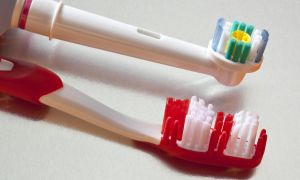Advertisement
If you have a constant sweet taste in your mouth, it’s possible you have taste impairment, meaning there’s a problem with your ability to taste. There are many reasons for taste impairment, including a nasal infection, cold, or flu. It could also be related to an ear infection, vitamin B12 or zinc deficiency, swollen gums, certain medications you are taking, a side effect of smoking pipes, exposure to some chemicals (such as insecticides), or dental problems. If the taste disorder is related to your dental hygiene or care, your dentist can diagnose the problem. Otherwise you might want to see your doctor. An otolaryngologist, also known as an ear, nose, and throat doctor, would be a good specialist to consult about taste impairment problems, such as a constant sweet taste in your mouth.
Continue Learning about Oral Health
Important: This content reflects information from various individuals and organizations and may offer alternative or opposing points of view. It should not be used for medical advice, diagnosis or treatment. As always, you should consult with your healthcare provider about your specific health needs.




